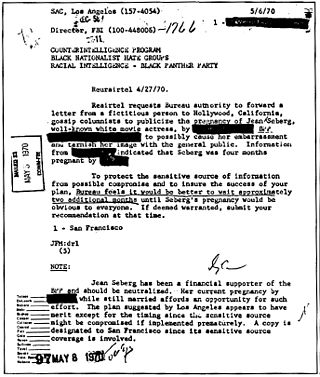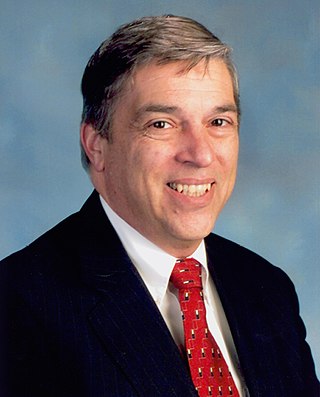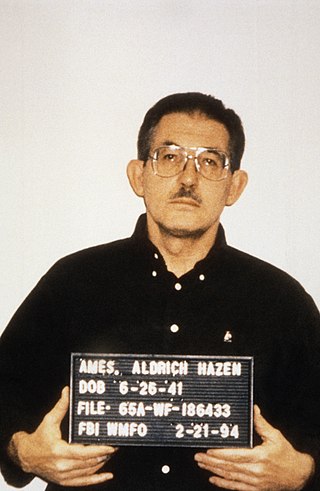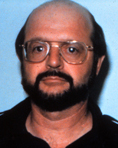Related Research Articles

COINTELPRO was a series of covert and illegal projects conducted between 1956 and 1971 by the United States Federal Bureau of Investigation (FBI) aimed at surveilling, infiltrating, discrediting, and disrupting American political organizations that the FBI perceived as subversive. Groups and individuals targeted by the FBI included feminist organizations, the Communist Party USA, anti-Vietnam War organizers, activists in the civil rights and Black power movements, environmentalist and animal rights organizations, the American Indian Movement (AIM), Chicano and Mexican-American groups like the Brown Berets and the United Farm Workers, and independence movements. Although the program primarily focused on organizations that were part of the broader New Left, they also targeted white supremacist groups such as the Ku Klux Klan and the National States' Rights Party.

Surveillance is the monitoring of behavior, many activities, or information for the purpose of information gathering, influencing, managing, or directing. This can include observation from a distance by means of electronic equipment, such as closed-circuit television (CCTV), or interception of electronically transmitted information like Internet traffic. Increasingly, governments may also obtain consumer data through the purchase of online information, effectively expanding surveillance capabilities through commercially available digital records. It can also include simple technical methods, such as human intelligence gathering and postal interception.

Robert Philip Hanssen was an American Federal Bureau of Investigation (FBI) agent who spied for Soviet and Russian intelligence services against the United States from 1979 to 2001. His espionage was described by the Department of Justice as "possibly the worst intelligence disaster in U.S. history".

Aldrich Hazen Ames is an American former CIA counterintelligence officer who was convicted of espionage on behalf of the Soviet Union and Russia in 1994. He is serving a life sentence, without the possibility of parole, in the Federal Correctional Institution in Terre Haute, Indiana. Ames was known to have compromised more highly classified CIA assets than any other officer until Robert Hanssen, who was arrested seven years later in 2001.
Earl Edwin Pitts is a former FBI special agent who was convicted of espionage for selling information to Soviet and Russian intelligence services.

Counterintelligence (counter-intelligence) or counterespionage (counter-espionage) is any activity aimed at protecting an agency's intelligence program from an opposition's intelligence service. It includes gathering information and conducting activities to prevent espionage, sabotage, assassinations or other intelligence activities conducted by, for, or on behalf of foreign powers, organizations or persons.
The American Library Association (ALA) is a nonprofit organization based in the United States that promotes libraries and library education internationally. It is the oldest and largest library association in the world.

Elizabeth Terrill Bentley was an American NKVD spymaster, who was recruited from within the Communist Party USA (CPUSA). She served the Soviet Union as the primary handler of multiple highly placed moles within both the United States Federal Government and the Office of Strategic Services from 1938 to 1945. She defected by contacting the Federal Bureau of Investigation (FBI) and debriefing about her espionage activities.

Dmitri Fyodorovich Polyakov was a Major General in the Soviet GRU during the Cold War. According to former high-level KGB officer Sergey Kondrashev, Polyakov acted as a KGB disinformation agent at the FBI's New York City field office when he was posted at United Nations headquarters in 1962. Kondrashev's post-Cold War friend, former high-level CIA counterintelligence officer Tennent H. Bagley, says Polyakov "flipped" and started spying for the CIA when he was reposted to Rangoon, Moscow, and New Delhi. Polyakov was suddenly recalled to Moscow in 1980, arrested, tried, and finally executed in 1988.

The New York Library Association (NYLA) is a group that promotes libraries in New York. It was founded in 1890 and was the first statewide organization of librarians in the United States. One of its founders was Melvil Dewey, who has had a lasting impact on libraries in the United States. The association was granted a provisional charter in 1929 and its Absolute Charter in 1946.

The Central Intelligence Agency (CIA) is a civilian foreign intelligence service of the United States federal government, tasked with gathering, processing, and analyzing national security information from around the world.
Spygate is a disproven conspiracy theory peddled by 45th U.S. president Donald Trump and his political base on many occasions throughout his presidential term. It primarily centered around the idea that a spy was planted by the Obama administration to conduct espionage on Trump's 2016 presidential campaign for political purposes. On May 17, 2018, Trump tweeted: "Wow, word seems to be coming out that the Obama FBI 'SPIED ON THE TRUMP CAMPAIGN WITH AN EMBEDDED INFORMANT.'" In that tweet, he quoted Andrew C. McCarthy, who had just appeared on Fox & Friends repeating assertions from his own May 12 article for National Review.

Carla Diane Hayden is an American librarian who is serving as the 14th librarian of Congress. Since the creation of the office of the librarian of Congress in 1802, Hayden is both the first African American and the first woman to hold this post. Appointed in 2016, she is the first professional librarian to hold the post since 1974.

United States Army Counterintelligence (ACI) is the component of United States Army Military Intelligence which conducts counterintelligence activities to detect, identify, assess, counter, exploit and/or neutralize adversarial, foreign intelligence services, international terrorist organizations, and insider threats to the United States Army and U.S. Department of Defense (DoD).

John Anthony Walker Jr. was a United States Navy chief warrant officer and communications specialist convicted of spying for the Soviet Union from 1967 to 1985 and sentenced to life in prison.

The practice of mass surveillance in the United States dates back to wartime monitoring and censorship of international communications from, to, or which passed through the United States. After the First and Second World Wars, mass surveillance continued throughout the Cold War period, via programs such as the Black Chamber and Project SHAMROCK. The formation and growth of federal law-enforcement and intelligence agencies such as the FBI, CIA, and NSA institutionalized surveillance used to also silence political dissent, as evidenced by COINTELPRO projects which targeted various organizations and individuals. During the Civil Rights Movement era, many individuals put under surveillance orders were first labelled as integrationists, then deemed subversive, and sometimes suspected to be supportive of the communist model of the United States' rival at the time, the Soviet Union. Other targeted individuals and groups included Native American activists, African American and Chicano liberation movement activists, and anti-war protesters.
The origins of global surveillance can be traced back to the late 1940s, when the UKUSA Agreement was jointly enacted by the United Kingdom and the United States, whose close cooperation eventually culminated in the creation of the global surveillance network, code-named "ECHELON", in 1971.
Crossfire Hurricane was the code name for the counterintelligence investigation undertaken by the Federal Bureau of Investigation (FBI) from July 31, 2016, to May 17, 2017, into links between Donald Trump's presidential campaign and Russia and "whether individuals associated with [Trump's] presidential campaign were coordinating, wittingly or unwittingly, with the Russian government's efforts to interfere in the 2016 U.S. presidential election". Trump was not personally under investigation until May 2017, when his firing of FBI director James Comey raised suspicions of obstruction of justice, which triggered the Mueller investigation.
Defending Rights & Dissent (DRAD) is a national not-for-profit advocacy organization in the United States, dedicated to defending civil liberties, exposing government repression, and protecting the right of political dissent. DRAD was formed as the merger of the Defending Dissent Foundation (DDF) and the Bill of Rights Defense Committee (BORDC). DRAD is currently active in defending the right to protest, opposing political surveillance, and campaigning against the prosecution of national security whistleblowers.

Herbert N. Foerstel was an American librarian and author known for his support of library privacy rights and his research into book banning.
References
- ↑ Foerstel, Herbert N. Surveillance in the Stacks: The FBI's Library Awareness Program. New York: Greenwood Press, 1991.
- ↑ McFadden, Robert D. FBI in New York Asks Librarians' Aid In Reporting on Spies. New York Times, September 18, 1987, sec. A, p. 1.
- 1 2 3 Aycock, Anthony (2023-01-23). "Before book-banning wave, the FBI spied on people's library activity". Washington Post. Retrieved 2024-10-20.
- ↑ Greenhouse, Linda (1988-07-14). "F.B.I. Defends Library Monitoring Program". The New York Times. Retrieved 2024-10-20.
- 1 2 Starr, Joan (2004-12-06). "Libraries and national security: An historical review". First Monday. 9 (12). doi: 10.5210/fm.v9i12.1198 .
- ↑ Lamdan, Sarah Shik (2013). "Why library cards offer more privacy rights than proof of citizenship: Librarian ethics and Freedom of Information Act requestor policies". Government Information Quarterly. 30 (2). Elsevier BV: 131–140. doi: 10.1016/j.giq.2012.12.005 . ISSN 0740-624X.
- ↑ "FBI Library Awareness Program". C-SPAN. June 20, 1988. Retrieved 20 October 2024.
- ↑ "First Library to Support Anonymous Internet Browsing Effort Stops After DHS Email". 10 September 2015.